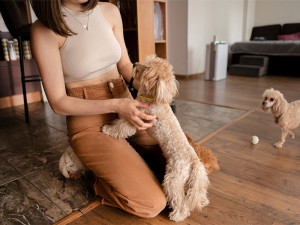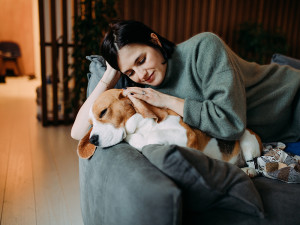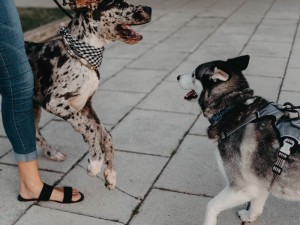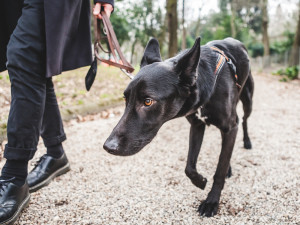Is Your Dog Sad?
Or are they just peacefully resting? Behaviourist Karen London explains how to tell the difference
It’s common for people to misinterpret a dog’s behaviour – from thinking a dog must be friendly because they’re wagging their tail to misunderstanding the meaning of barking and other vocalisations. Lately, I’ve noticed that many people interpret a dog who is lying down with their head on their paws as ‘sad’ when I don’t think that’s what’s going on.
It’s a very endearing look, and while it’s certainly possible that the dog could be sad, that’s not necessarily the case. Usually, the dog is just peacefully resting. This posture is especially common when dogs have had the pleasure of tiring themselves out with exercise.
Typically, a happy, relaxed dog has an open mouth, bright eyes and bouncy movements. That sort of exuberance in both face and body makes it easy to understand that a dog is in an upbeat emotional state. It’s when a dog is calm that it’s harder to tell if the emotional state is sad or content.
A dog who is lying down with their head on their paws will have a closed mouth, which always makes them look less happy. The eyebrows often move as the dog looks around, which can make a dog look pensive; the dog doesn’t look energetic, which can be confused with sad.
However, a dog who is lying down is likely to be pretty comfortable in the situation since dogs rarely lie down if they’re scared or otherwise agitated. Most often, dogs who are lying down with their heads resting on their paws are relaxed and at ease – and that’s a good thing.







